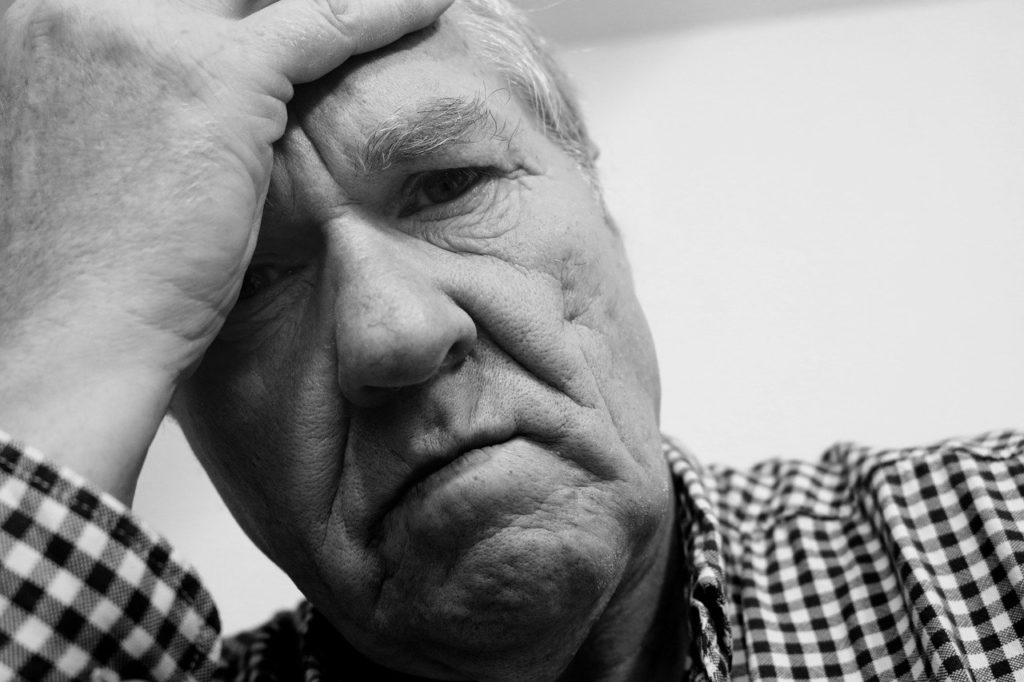
October is annually designated as National Depression Awareness and Education Month, and that means that in Hernando and elsewhere around the globe, people will be drawing more attention to the plight of those who suffer from depression, and to ways that education can improve our understanding of depression. Senior home care professionals frequently encounter depression among their charges, either due to the loss of a loved one, the loss of their independence, or simply having to confront some of the grim consequences of aging and declining mental health.
There are nearly 15 million adults in this country who are troubled by Major Depressive Disorder, and it can leave you feeling helpless, distressed, worthless, or at the very least, extremely anxious about life. Even when things seem to be going well in the life of a depressed person, it can be difficult for that person to rise above the negative feelings which weigh him/her down. The problems or difficulties may not be apparent to observers, but to an individual who is depressed, it can seem like the weight of the world is crushing them every day.
The prevalence of the COVID-19 pandemic has exacerbated the depression problem in this country, with more than one-third of all adults reporting feelings of anxiety and depression. According to recent statistics compiled by the Census Bureau, a full 24% of adults had symptoms of Major Depressive Disorder, which is nearly one out of every four individuals. Even more alarming was the fact that 30% showed symptoms of Generalized Anxiety Disorder. The age groups most affected by the pandemic in terms of causing depression are those people aged 18 to 29 and 30 to 39, presumably because their livelihood has been disrupted more severely. Older people, while more likely to contract the disease itself, are less likely to report feeling depressed or anxious about the pandemic.
The impact of COVID-19 depression
Not surprisingly, people with lower incomes have been the biggest demographic to be impacted by COVID-19 and its resultant feelings of anxiety or depression. Very few people in the $150,000 per year or more bracket reported feeling anxiety about the pandemic, while those in the $25,000 per year bracket declared that they felt anxiety almost every day about the situation. In April of this year, 50% of all Americans declared that they felt emotionally impacted by the coronavirus pandemic, according to the findings of the Kaiser Family Foundation. Meanwhile, the American Foundation for Suicide Prevention also reports that the nationwide feelings of anxiety, depression, and sadness have significantly increased since last winter.
There are a number of factors that contribute to this increase in anxiety and depression, starting with the fear of contracting the disease. Many people have friends or relatives who have been stricken, and this hits close to home for these individuals, and deeply affects their emotions. Whenever one of these friends or relatives becomes sick enough to die from the disease, it can cause a deep depression among surviving relatives and can increase their general feeling of anxiety.
The restrictions which have accompanied the coronavirus have also played a role in promoting depression and anxiety, for instance, the need to stay at home and to avoid any large social gatherings. People thrive on social interactions, and when these are forcibly removed, it can impact them in a major way. Even social distancing is a constant reminder that you can’t get too close to others during the era of the pandemic. There are of course, also a number of financial concerns related to the disease, with unemployment skyrocketing across the country, as businesses are required to reduce their services and in some cases, to shut their doors entirely.
In some cases, the impact of the pandemic has also resulted in much less access to caregivers, who simply cannot make one-on-one visits as they could prior to the pandemic. When you have relied on personal care from an in-home caregiver for a period of months or years, it can be a major shock to the system to have that care suddenly taken away. Finally, the mere fact that the pandemic is so pervasive around the world, and that nearly one million people have died from it, is enough to cause almost anyone to fear for the future, and to become anxious or depressed.
How to combat depression and anxiety
While the coronavirus disease itself will undoubtedly be with us for a while, there are some things you can do to fight the anxiety and depression that it may be causing you or people you know. Doctors recommend that you try to get a good night’s sleep as often as possible, that you exercise to relieve stress, and that you observe good nutrition habits so that your body is better able to fight off the effects of depression. One more very important way you can combat depression is to talk about your fears or anxieties with a friend or family member. Holding all those things in will generally worsen the problem for you, but if you can get them off your chest, you will undoubtedly feel at least somewhat better about your life.
